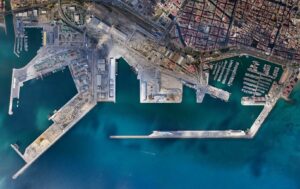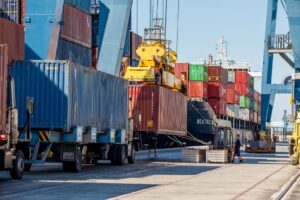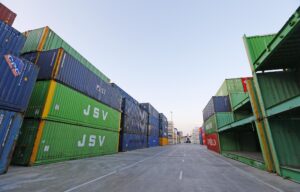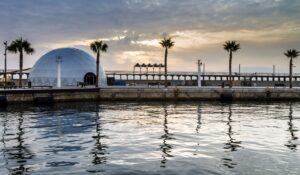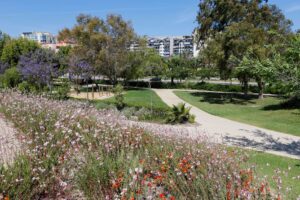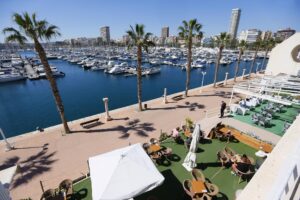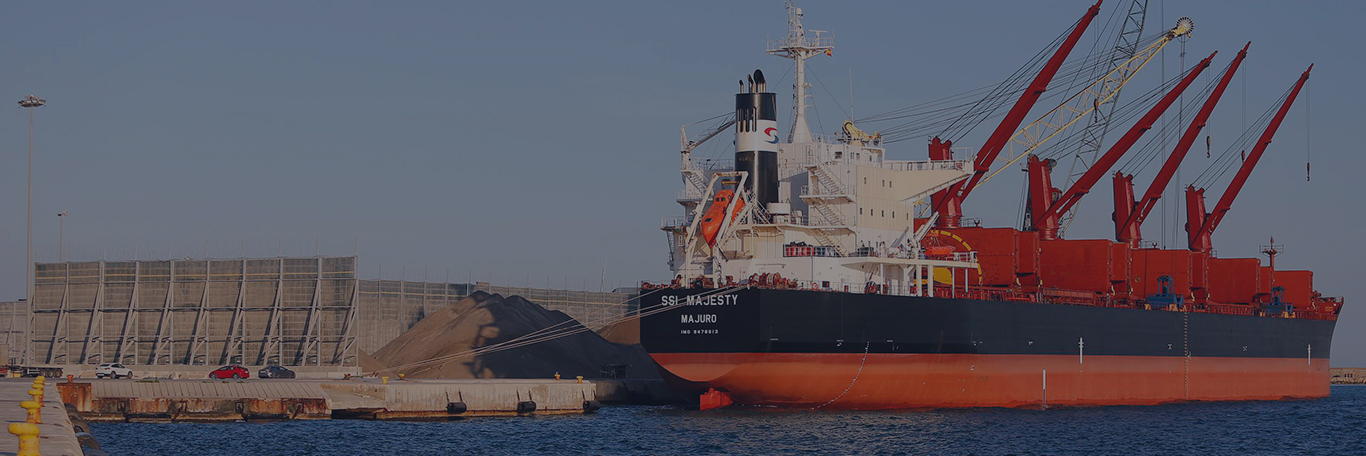-
Port Authority
-
Port Authority
Dependent on State Ports, it is the public body in charge of managing one of the 46 Spanish ports of general interest: the port of Alicante.
-
Port Authority
-
Port Community
-
Port Community
A comprehensive vision is essential to improve productivity and connectivity, the Port Community integrates all participants in logistics and business operations
-
Port Community
-
Deal
-
Deal
The port is essential in the logistical gear of the province, and of the state economy. We are always connected to offer you solutions.
-
Deal
-
Sustainable innovation
-
Sustainable innovation
The port is a space for open innovation, learning development, collaborative work and a cooking workshop
-
Sustainable innovation
-
Environment
-
Environment
One of the strategic priorities of the Port Authority is caring for the environment and optimizing port activities focused on sustainability
-
Environment
-
City port
-
City port
Alicante, a seafaring city, has grown through the centuries strengthened by its port. Its climate, the sun, places open to the city, to enjoy them, to walk them, to live them.
-
City port
Alicante Port Authority, under the commercial name of Port of Alicante, is the public body responsible for the management of the state-owned Port of Alicante located in the city from which it takes its name.
The APA, like the rest of the Port Authorities, is a department of the Ministry of Transport, Mobility and the Urban Agenda and is governed by Legislative Royal Decree 2/2011 of 5th September, whereby the Consolidated Text of the Law on State Ports and the Merchant Marine is approved. This law sets forth the role to be performed by the APA in the fulfillment of the duties it has been entrusted, as well as its organisational structure.
Esta ley establece el rol que debe desempeñar la APA en el cumplimiento de las funciones que tiene encomendadas, así como su estructura organizativa.
Also, the APS’s Strategic Plan sets its mission and the strategic goals to be achieved in the coming years.
The Port of Alicante is laid out as a port of departure for North Africa, the Balearics and the Canaries. It is the natural departure gateway of Alicante foreign trade for the export of footwear, toys, marble, textile and agricultural production with destination primarily to Europe, America and North Africa. It also constitutes the entry gateway for the import of auxiliary machines and tools for footwear, and agricultural and food products from Asian countries and other European trading partners such as Portugal.
It is equipped with infrastructures and services designed to respond best to the demands of the ship and the goods, and to offer its users modern facilities able to handle and store any type of goods.
The channelling of goods through the Port of Alicante addresses the minimisation of the total distribution cost, which not only makes up the economic cost, but also very much takes into account risk minimisation and time reduction.
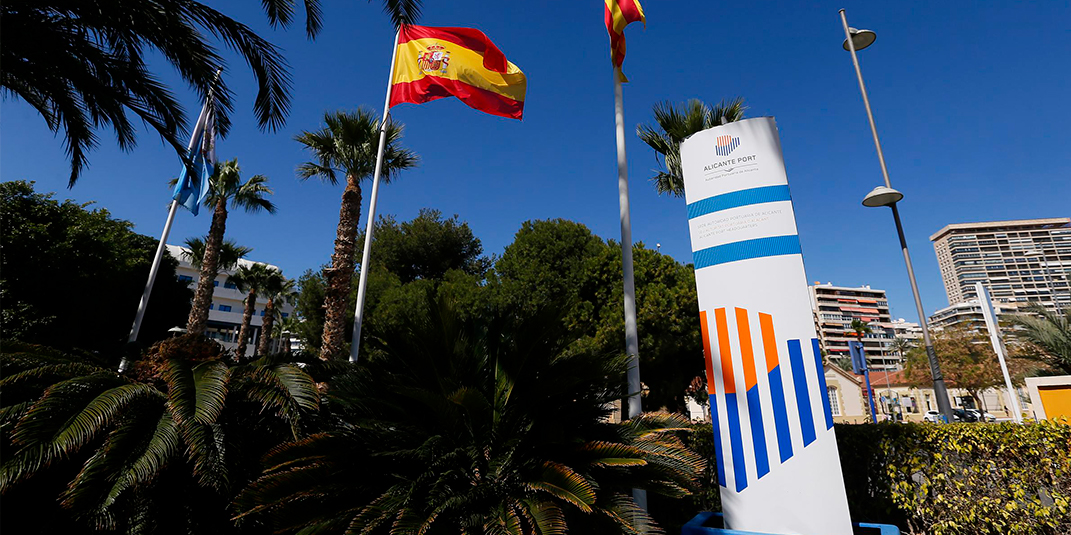
Service quality
Along the same lines, the Port of Alicante is an efficient, safe and competitive port that is focused on the future. It has a highly qualified workforce and a network of highly effective port companies.
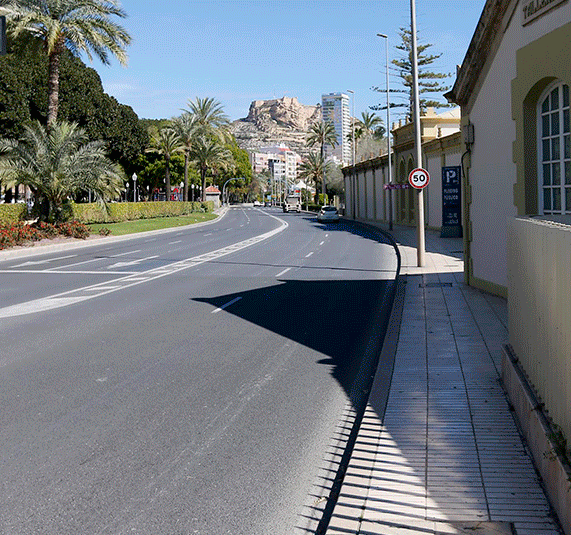
Communications
The Port of Alicante has unrivalled links at the service of a rapid and safe transportation with a direct link to any part of the Iberian Peninsula and rest of Europe. The surrounding transportation is interlinked through the Mare Nostrum Motorway, and the Madrid-Albacete and Mediterranean Motorways, with a direct link to the whole of Andalusia.
Regarding rail transport, it is also connected to the dense Spanish and European rail networks.
The container terminal has direct access to the rail terminal, enabling rapid and fluid rail transportation.
Alicante-Elche International Airport, just a few minutes from the port, has undertaken numerous investments to deal with the region’s significant volume of traffic, becoming an indispensable ally to complete the air connection of the port and of the entire province.
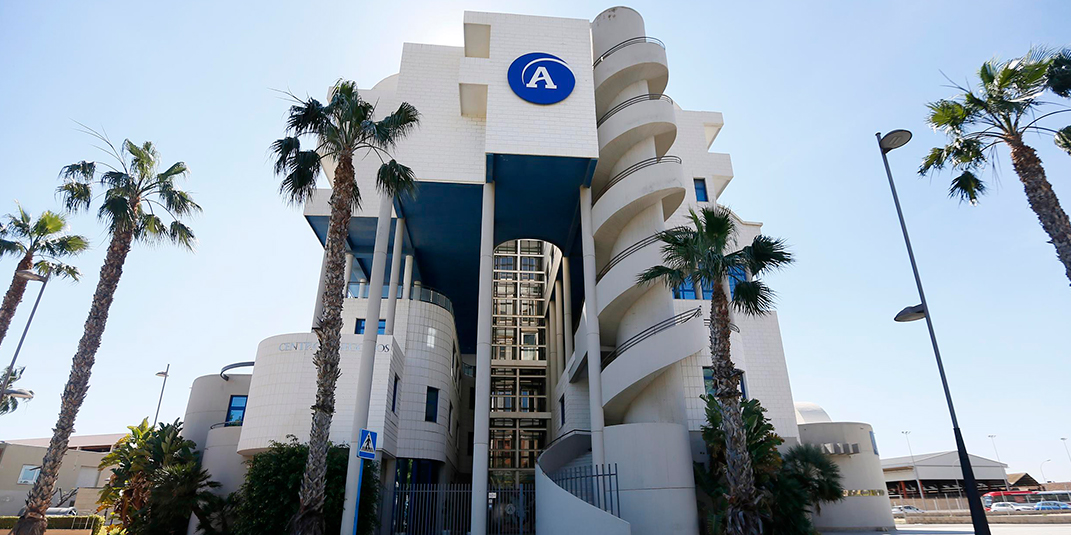
Innovation
The commitment to drive the competitiveness, attraction and sustainability of Alicante province has led the Port Authority to boost innovation by creating the Alicante PortLab, an open innovation laboratory, in collaboration with the port-logistics cluster, in order to develop a different, open and sustainable model of innovation.
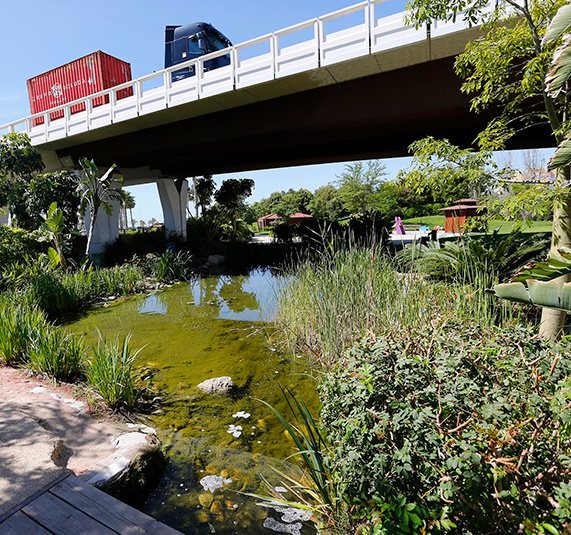
Sustainability
Alicante Port Authority is committed to contributing to the achievement of the sustainable development goals included in the 2030 Agenda and, in particular, of the initiatives agreed for the State Owned Port System as a whole. The implementation of corrective measures, as well as the preventative management of operations according to the meteorological and atmospheric pollution values obtained in real time, have contributed to a significant improvement in air quality. Water quality and management is another priority goal, which is undertaken by carrying out sampling campaigns with water and sediment analyses in all the port wharfs, and also implementing a water usage optimisation system using regenerated water for the irrigation of existing vegetation. Among many other actions, rail facilities have also been adapted to longer trains, in order to drive rail traffic as a more efficient alternative to road transport, especially in its connection with the centre of the peninsula and, in the future, with the Mediterranean corridor.

